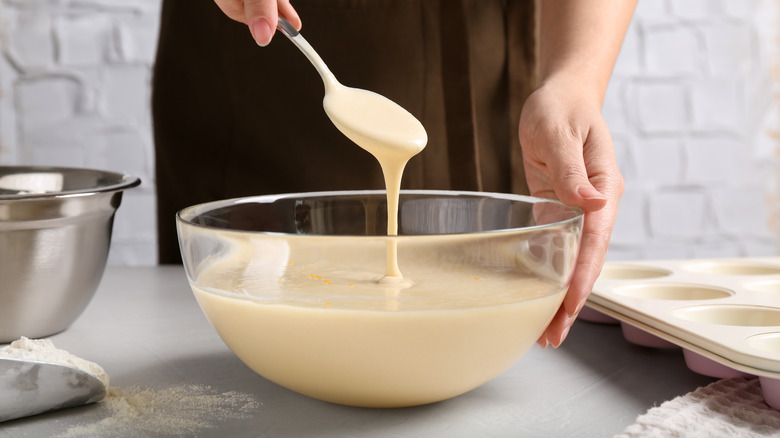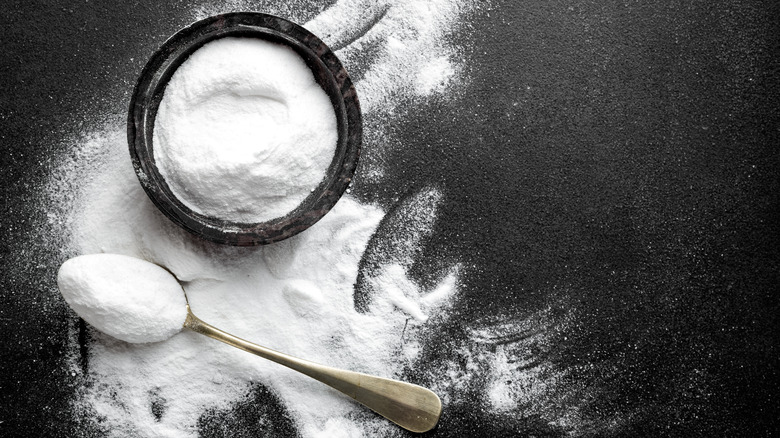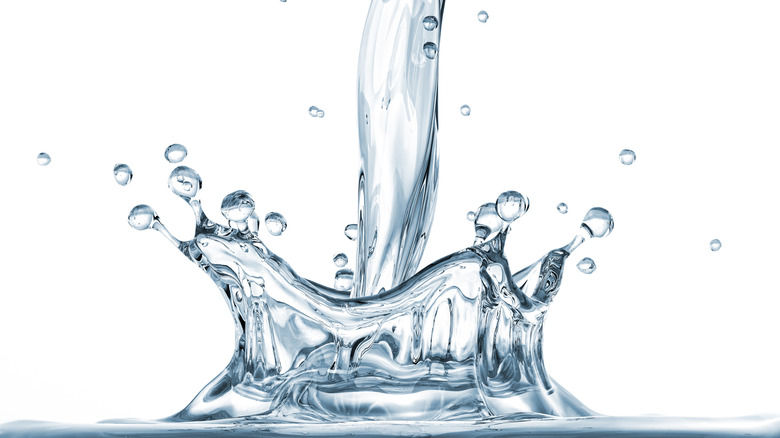When Can You Substitute Club Soda For Baking Powder?
Baking powder is responsible for the structure and texture of baked goods. It's what gives those muffins, cupcakes, and loaves of bread their beautiful dome, transforms a pancake from a hockey puck to a fluffy forkful, and what makes buttermilk biscuits more airy than dense.
Baking is a science, chock-full of carefully measured ingredients and delicate chemical reactions. Simply leaving something out of a recipe — or swapping in one integral ingredient for another in the hope it'll do the trick — rarely works out. For example, perhaps you're well-stocked for making vodka sodas, but your baking pantry is running low on leaveners. Can you swap in the club soda? Just like that carbonated club soda causes bubbles in your belly, it can have a similar effect with food — much like a leavener. However, it's not a straightforward substitute for baking powder and there are some general rules of thumb to follow if you decide to swap it in. When is it an appropriate substitute?
How leavening agents works
Baking powder is a chemical leavener. It's a combination of its fellow leavener partner, baking soda, plus cream of tartar or another acid. Leaveners work by releasing carbon dioxide bubbles when combined with a liquid. These bubbles create pockets of air that add lift and lightness to the batter. In simple terms, they provide the rise for baked goods.
Baking soda – also known as sodium bicarbonate — on its own does not provide that rise. It must be paired with an acid to activate it and create bubbles, and that acid is often found in the form of buttermilk, sour cream, or cocoa in the recipe. Baking powder has the acid built-in so it can be used on its own to leaven, regardless of whether or not the recipe contains any acid. However, baking powder is often called for when there is no acid present in the ingredient list.
When will club soda suffice?
Everybody's favorite drink mixer, club soda, happens to contain baking soda in it. Following that logic, adding an acid should have it chemically react the same way baking powder does, correct? Yes and no. While club soda contains sodium bicarbonate, it only does so in small amounts, per Healthline.
However, if you're elbows-deep in a recipe and find yourself sans a leavener, a visit to the bar cart may do the trick depending on what's on the menu. Subbing in club soda for all of the liquid that is called for in the recipe might work just fine in most dishes. Given that baking soda needs an acid to react, club soda as a baking powder swap-in is best suited for recipes that are on the acidic side. So think less delicately-domed muffins and cupcakes, and more along the lines of battered fish and chips, matzoh balls, waffles and pancakes.


